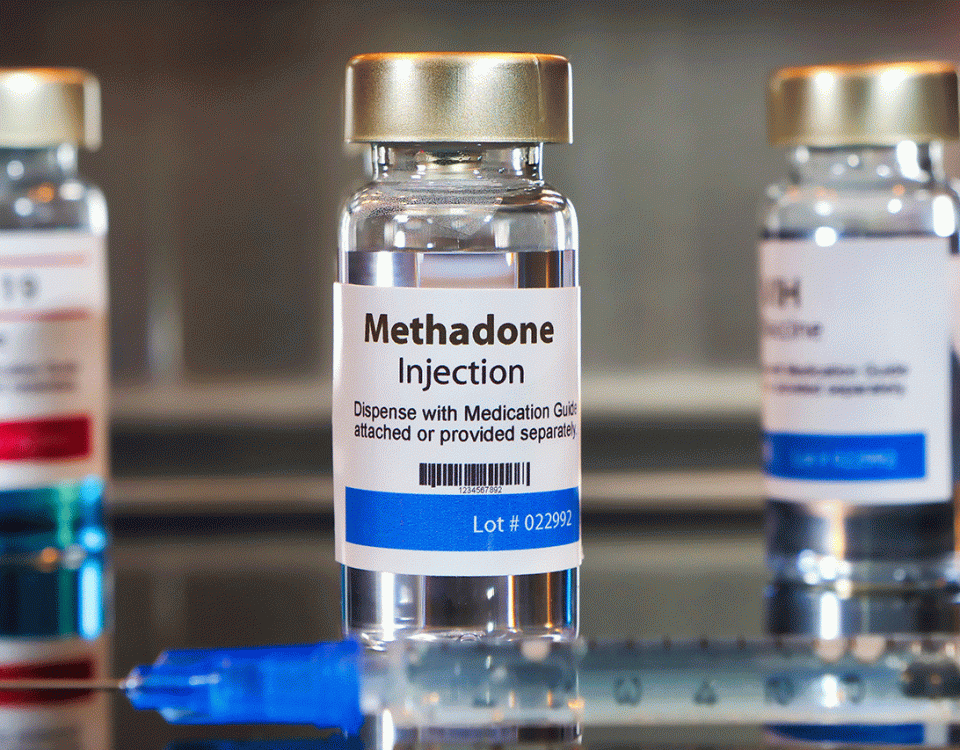Methamphetamine is an illicit central nervous system stimulant that produces an energetic and euphoric high when abused.
Other common names for methamphetamine include ice, meth, and crystal meth. As a stimulant, meth targets the brain by elevating levels of the chemicals norepinephrine and dopamine, producing euphoria and increasing energy and attention. There are many ways to use meth, including injecting it, smoking it, snorting it, or taking it as a pill. Out of these methods, the most common way to use meth is by smoking it. It’s understandable why many wonder, “can you overdose from smoking meth?” Our Delaware drug rehab has done its digging.
How Meth Overdose Happens
A meth overdose occurs when someone takes intoxicatingly high doses of meth (either accidentally or on purpose) and experiences negative physical and psychological side effects. These side effects usually occur because the dose taken is too much for the body to handle. Whether it’s smoked, swallowed, injected, or snorted, it’s the amount of the drug that determines whether an overdose will occur. A crystal meth overdose can be deadly not because of the overdose itself but because of its symptoms. People with crystal meth addictions who do not get help from a crystal meth detox in Delaware are more likely to continue their drug use and increase their risk of overdosing.
Can You Overdose Smoking Meth?
Yes, you can overdose from smoking meth and any other form of using it. Meth usually comes in the form of a white crystal-like powder when it’s sold on the streets. This powder can be snorted, smoked, swallowed, or even dissolved into a liquid and injected. Many people wonder if the form of use changes how dangerous crystal meth is or how it will affect your body. For people with severe drug addictions, drug overdose is a real concern.
The longer someone uses a drug, the more tolerant of it they become, and the more of it they’ll need to use to experience the same high. This pattern usually leads to overdose, among other issues. However, you don’t have to be addicted to meth to overdose on it. A meth overdose is based on how much of it someone uses. Overdoses can occur accidentally or on purpose, so it’s important to know what meth overdose symptoms are and to be able to recognize them.
Meth Overdose Symptoms
Whenever people use meth, they leave themselves open to the risk of overdose. Because meth is an illegal drug that’s often sold on the streets, it’s impossible to know its purity and what it contains. If someone you know struggles with meth addiction, being familiar with the signs of meth overdose could save their life.
Some common meth overdose symptoms include:
- Chest pain
- Arrhythmias (irregular heart rhythm)
- Hypertension or hypotension (high or low blood pressure)
- Difficult or labored breathing
- Agitation
- Hallucinations
- Psychosis
- Seizures
- Kidney failure (urinating less or dark urine)
- Loss of consciousness
- Intensely hyper or aggressive behavior
- Paranoia
- Rapid or slow heartbeat
- Hyperthermia (high body temperature)
In addition to overdose, the long-term risks of meth use also include mental illness. For instance, a link between meth and bipolar disorder has been found, as well as many other psychological issues that may arise from drug use. Fortunately, with the help of our meth addiction treatment at Banyan Treatment Centers Delaware, you or a loved one can avoid these dangers, overcome addiction, and recover from its physical and mental impact.
Is Meth Overdose Common?
The surge in methamphetamine overdose deaths, as revealed by the National Institute on Drug Abuse (NIDA) study covering 2015 to 2019, remains a critical focal point despite the retrospective nature of the data. Methamphetamine overdose mortality in the US among those aged 18 to 64 nearly tripled over this time.1 While acknowledging the inherent time-based lag in data collecting and reporting, the findings highlight significant patterns that continue to have public health implications. A complex interaction of causes is indicated by the disproportionate increase in overdose deaths in comparison to the rise in reported methamphetamine usage. This underscores the necessity for continued study and focused interventions.
The report emphasizes how urgent it is to address methamphetamine-related issues in light of the larger overdose crisis in the United States. Based on preliminary data from the U.S. Centers for Disease Control and Prevention, the nation saw a startling 93,000 drug overdose deaths in 2020—the greatest one-year spike ever. The increasing number of overdose deaths linked to psychostimulants—especially methamphetamine—highlights how the field of substance use disorders is changing.1
The changing demographics highlight how dynamic this public health issue is, with American Indians and Alaska Natives currently having the greatest rate of methamphetamine usage. Although the study is retrospective, its conclusions highlight the continued necessity of all-encompassing approaches to reduce the hazards related to methamphetamine use.
Can You Die From Smoking Meth?
Yes, meth can kill you, including when it is smoked. Smoking methamphetamine makes it possible for the drug to enter the bloodstream and reach the brain quickly, giving rise to a powerful and instantaneous euphoric high. But there are serious risks involved with smoking meth, some of which are potentially fatal.
The stress meth puts on the heart is one of the main dangers of smoking the drug. Elevated heart rates, hypertension, and arrhythmias can result from methamphetamine usage. These effects are amplified by smoking the substance, which increases the risk of heart attacks, strokes, and other cardiovascular problems. Furthermore, the extreme stimulation that comes with meth usage can create hyperthermia, a severe condition in which the body temperature rises dangerously. Someone can die by smoking meth because of the deadly mix of respiratory problems, hyperthermia, and cardiovascular stress. The hazards that using methamphetamine poses to one's health highlight the significance of efforts in treatment, prevention, and education to address this grave public health issue.
How Much Meth Is Too Much?
Because everyone has a different tolerance, metabolism, and level of health, figuring out how much meth is too much can be difficult. Methamphetamine is a potent stimulant, and higher dosages can cause the drug's effects to become more pronounced. Each person has a different threshold for an amount of meth that is harmful or potentially fatal. The effects of using methamphetamine are dependent on several factors, including the drug's purity, how it is used, and any underlying medical issues a person may have.
Higher dosages of methamphetamine have more detrimental effects and raise the possibility of serious physical and mental health problems. Even lower doses used regularly might cause cardiovascular issues, addiction, and cognitive decline. Higher dosages might cause symptoms like excessive anxiety, violent conduct, hallucinations, and paranoia. Methamphetamine overdose poses a serious risk since high dosages can cause mortality, seizures, circulatory collapse, and heat. Methamphetamine use carries inherent risks. For this reason, using it for anything other than approved medical uses is dangerous. For those who are battling with methamphetamine addiction, seeking assistance from medical professionals and support programs at our Delaware rehabs is essential to prevent possibly fatal effects.
How to Stop a Meth Overdose
A meth overdose can occur at any time. You don’t have to be addicted to it, and you can even overdose your first time using it. If you recognize the signs of a meth overdose in someone, the first thing you should do is call 9-1-1. Get medical assistance right away to reduce the risk of worsening symptoms and death. Additionally, if the person is experiencing symptoms like a seizure, hold their head up to prevent injury and tilt their head to one side to prevent them from choking if they vomit.
Do not attempt to hold them down. If someone experiences a crystal meth overdose, their odds of recovery depend on how much of it they took and how quickly they received medical treatment. While recovering from a meth overdose is possible, the person must receive immediate medical attention.
Crystal meth is a dangerous drug that can take over a person’s life, but not for good. Banyan Delaware is all about helping people with addictions recover from drugs and alcohol and get sober. We don’t just care about your health but also about your sobriety and life after rehab. To learn how our inpatient Delaware rehab can help you get started on your recovery from addiction, call us at 888-280-4763.
Source:









